MENU
Filed Under:
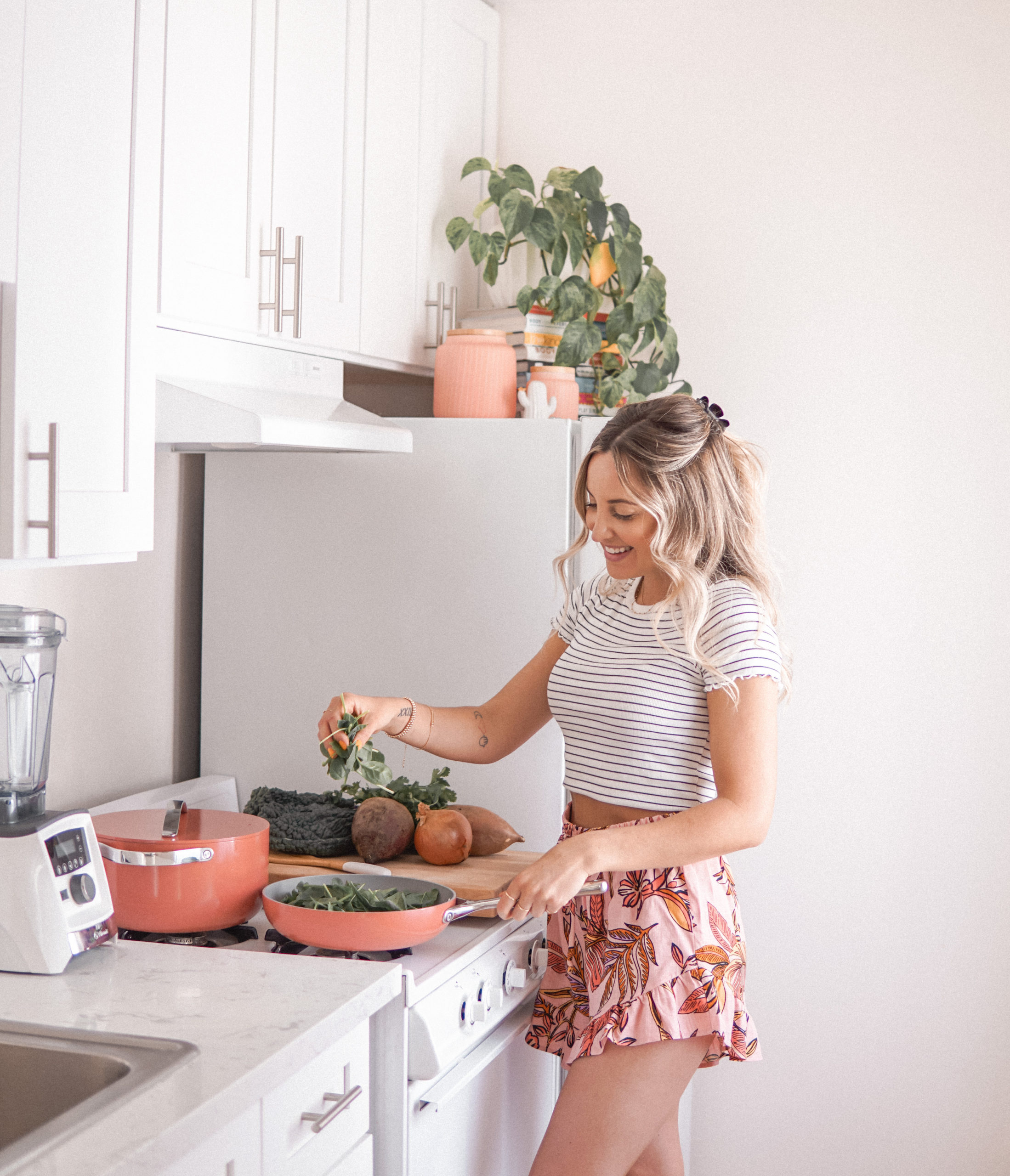
May 22, 2021
UP NEXT >>>
Why I Eat A Predominantly Oil-Free Diet
You know what we do not give enough credit in this world to? How small changes can create big waves! And going oil-free, or merely reducing oil in your diet, is one of those small changes that can influence your body in significant ways.
On top of those benefits, it’s also kind of fun to challenge conventional ways and think outside of the oil-cooking methods we know. So sit back and get excited for a super educational blog post on all things oil-free!
Before I get into this post, I do want to make it VERY clear that while I have completed a Plant-Based Nutrition Certificate Program where we covered the benefits of going oil-free at great lengths, I am not a licensed health professional; you should always do your own research and find what works best for your own body. I wanted to share what I know and what I believe to be true as I share a lot of my recipes on my Instagram story, 99% of which are oil-free, and I am frequently asked why I have chosen to eat a predominantly oil-free diet! Also, let me just give some clarity on why I say predominantly oil-free: I am a foodie at heart and I really enjoy eating a nice meal out every now and then! If I go somewhere that prepares the dish using oil I’m going to enjoy it! But when I am cooking at home I would say 99% of the dishes I create are made without oil. Other than sticking to a 100% plant-based diet, I try to avoid creating hard and fast rules around food!
Okay, now that we have all of that cleared up lets get into the health benefits of reducing oil in your diet!
Health Benefits of going oil-free
Improve heart health
According to Theresa Houghton in New to an Oil-Free Diet? Here’s What You Need to Know when eating oil foods, “Endothelial function diminishes for several hours, leading to decreased blood flow.” Sounds terrible, right? But just wait, Houghton then adds, “Excess fats are converted into triglycerides and cholesterol in the liver and stored in the body as a future source of fuel.”
Let me break this down a bit. Endothelial is the membrane lining of your blood vessels and heart. Bluntly, we want the blood to bump through and experience little if any decrease of any sort. Further, triglycerides are fat in your blood, and we all know cholesterol is a no bueno when high. Again, we need to ensure we are being intentional about protecting our heart and how our blood is circulating through it. Dare I say it is the most critical part of your body functioning, bb!
Less processed and empty calories
Let’s talk about what oil actually is. In Plant-Based Tips for Cooking Without Oil, Terri Edwards strikes us with the fact that “Gram-for-gram, oil has the same number of calories as beef fat.” Now I understand you may not be plant-based, but even if you do eat beef, you can understand how beef will have more nutritional value than a gram of oil.
What we put into our bodies should fuel us. It should fuel our energy, our biological system, and our souls. I want you to consider if consuming oil is doing that for you! If it’s not, what other good stuff can you ingest to have a higher vibe? By eliminating oil, you create space to eat less processed and empty calories and instead more of the good stuff.
Helps ensure a REAL whole food diet
Since you do need some healthy fats in your diet to absorb nutrients appropriately, it is important to still get fat. Going oil-free challenges, you stop getting your fats from oil and other processed foods. Instead, increase the nutrient-dense whole foods you are intaking! What foods are these, though?
- Nuts, seeds, and whole-food nut butter.
- Avocados.
- Chickpeas, pinto beans, and other beans.
- Fermented soy products
You know my favorite part about this? You can make the yummiest things with this stuff—avocados on top of everything and anything. Nuts are the best grab-and-go snack. And chickpeas are nature’s chips when you roast them up (oil-free, of course).
Tips for Cooking Oil-Free
I promise you this is the fun part! How many of us cook on auto-pilot, especially when it comes to the basics like salt, pepper, and oil. You can keep the salt and pepper because classics, but now that you are ditching the oil, these are my favorite tips to cook in an easy new way!
Sauteing
When you are using the stove and sauteing up some veggies, there are two simple things to adjust when subtracting oil. The first is investing in a really good non-stick pan! When I decided to start making a conscious effort to reduce my oil intake I invested in a few new pans that have made the BIGGEST difference! I have a couple pans that are amazing for cooking without oil: GreenPan + Our Place + Caraway Cookware are all fab brands! You can also try cooking at reduced heat which will not only allow you to avoid food sticking to the pan and urging, but this will also allow you to get that yummy caramelization we all love on the veggies. Shocker, you don’t need oil, right? With certain veggies that are less moist you may still require moisture, though, so it is essential to use water or vegetable broth. Similar to oil, start with a teaspoon at a time and more as needed. So simple, right?
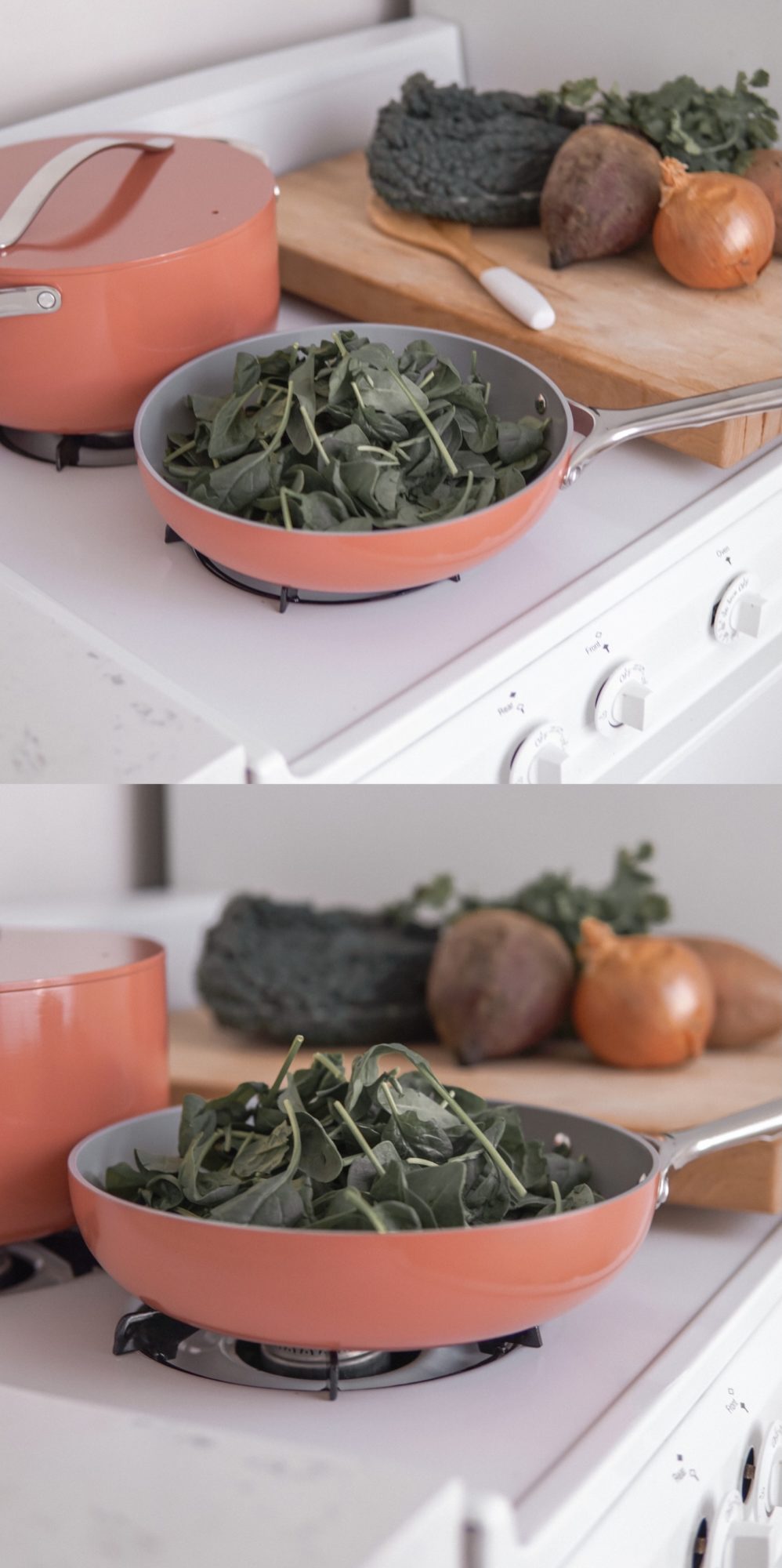
Roasting
Okay, so when you want those super homey roasted vegetables, I have one word for you: parchment paper! Okay that’s two words technically but you get the point. I’m also going to recommend that you invest in a quality non-stick baking sheet. Investing in this piece of equipment when roasting oil-free will make roasting easy and stress-free. If you are roasting non-starchy vegetables, all you need to do is season them and throw them in. If the veggies are starchy, I recommend steaming them lightly first until tender and then follow the same process as the non-starchy. I also will occasionally toss the veggies in lemon juice prior to roasting which will give them a great taste and get them from drying out in the oven! Again, not complicated at all!
Salad Dressing
Salad dressings are fun to make and a great way to not have all the additives many store-bought dressings have. Unfortunately, most have oil. Try these bases instead:
- Avocado (mashed with some water)
- Whole nut-butters (think Thai peanut sauces)
- Lemon or lime juice
- Dijon Mustard (most are oil free and vegan!)
- Adding equal amount cornstarch or arrowroot to water
With this as your base, you can still add absolutely anything else you would typically add to your DIY salad dressing. Of course, if you want to buy it at the store, do a google search first. I promise you they do exist, but it will save you so much time in the aisle reading the back of all the labels!
Baking
Okay, now that we’ve talked all the veggie prep, now to the fun stuff: muffins, cookies, cakes… and any other baked goods you may have assumed would have to be cut out. This is the thing about going oil-free, there is always a replacement, and luckily, your options for baked goods are limitless. Here are some of my favorite options but of course, google specifics of substitutes for the specific treat you are making for the best turn out: avocado, mashed ripe banana, flax-seeds, chia-seeds, applesauce, silken tofu, whole nut-butters, & pureed squashes.
So there you have it, bb. I have been eating mostly oil-free for a while now, and I genuinely believe in the science behind it! Also, if you’re keen to learn more abut plant-based nutrition I just had my friend Whitney English who is a registered dietician and plant-based nutrition expert on The Yoga Inspire Life Podcast! She drops SO much knowledge, it’s a must listen! Here is a link to the episode: PLANT-BASED REALNESS 🌱 with Whitney English RD
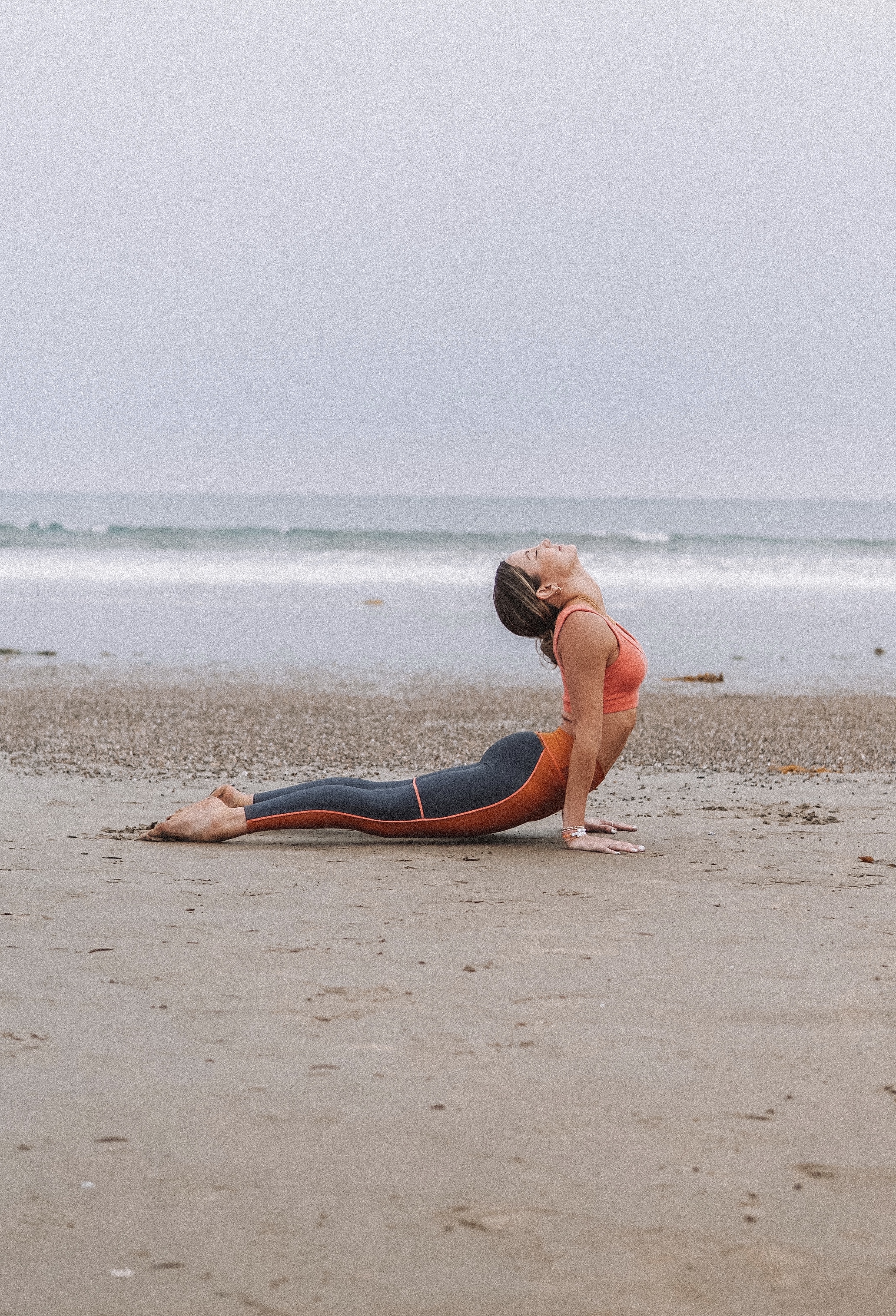
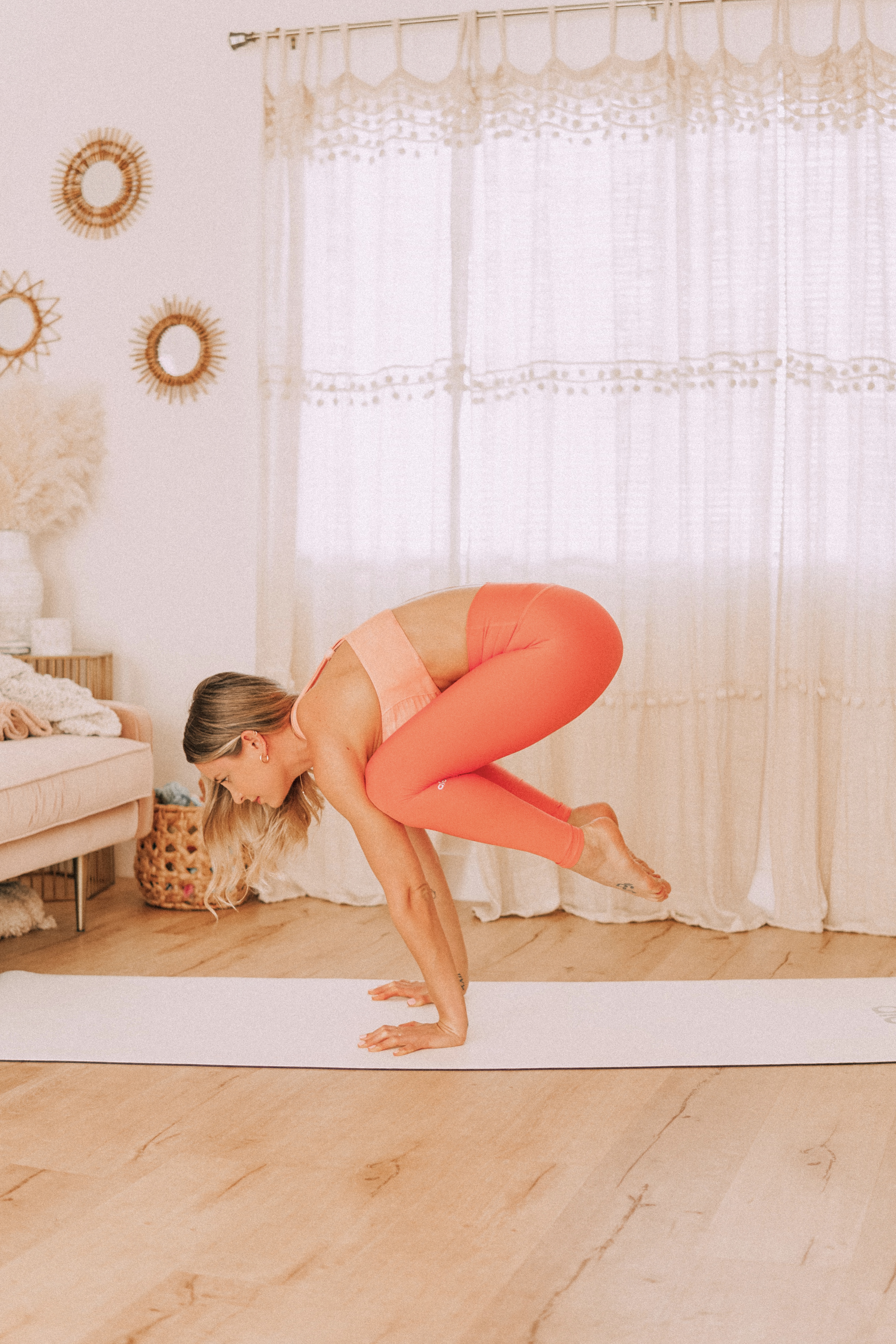
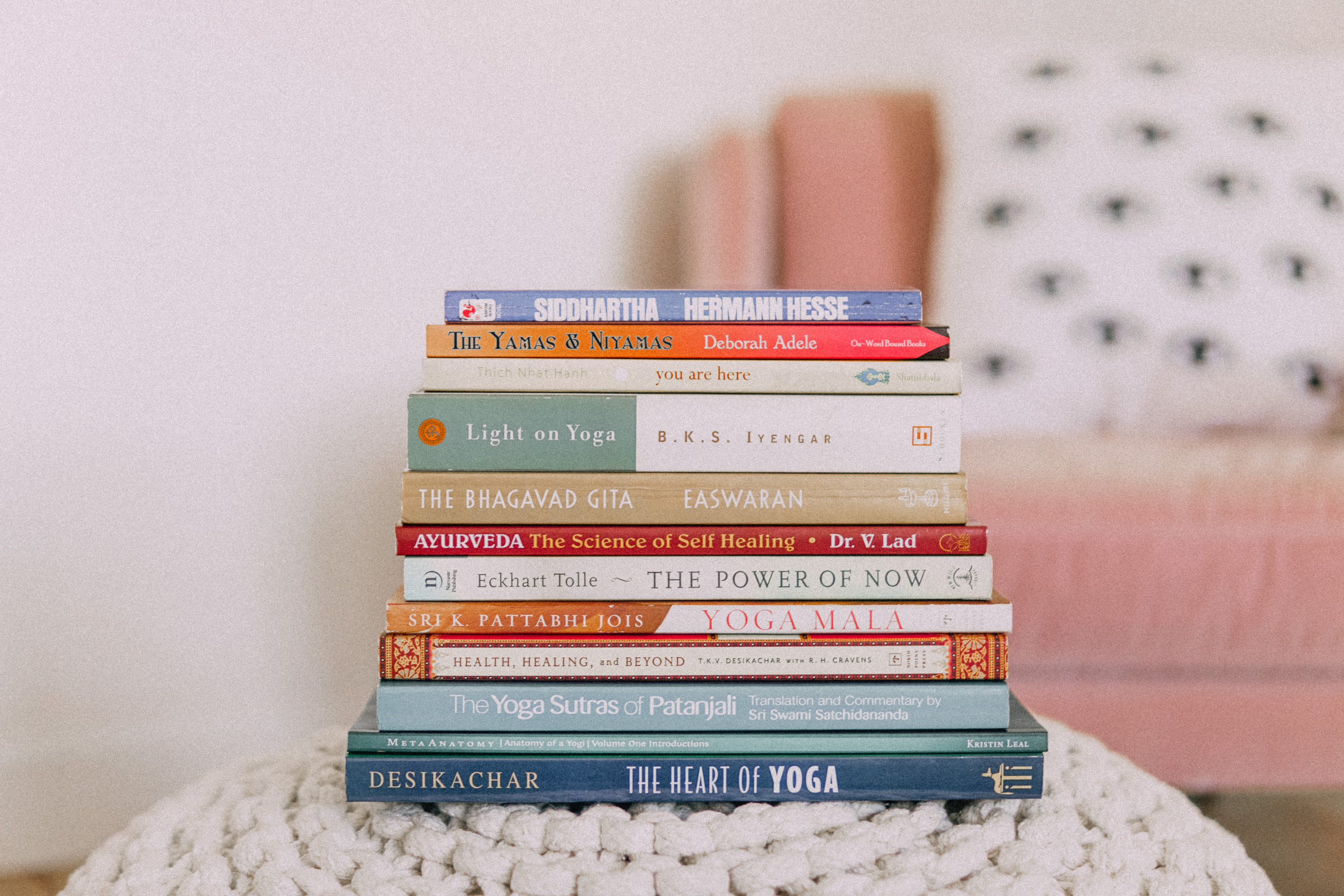
Comments Link